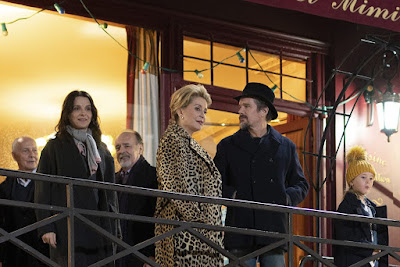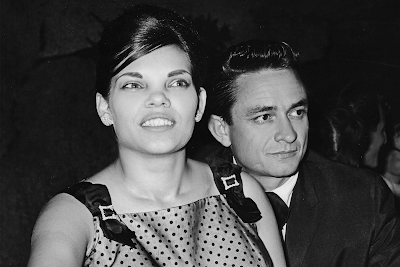Kore-Eda Hirokazu's first film not in his own Japanese language (so far as I know), THE TRUTH -- not to be confused with the old Henri-Georges Clouzot film with Brigitte Bardot -- is spoken in mostly French with some English by actors as diverse as Catherine Deneuve, Juliette Binoche and Ethan Hawke, all of whom are fine and dandy -- as is this lovely film itself.
One of the "family reunion" variety, as have been a number of Kore-Eda's movies -- granted, sometimes in rather unusual ways -- The Truth involves a grand dame of French cinema named Fabienne (Ms Deneuve), now at what may be the end of her career, and a visit from her daughter Lumir (Ms Binoche) who is a screenwriter working in the USA, from whom she has long been at least slightly estranged; her son-in-law Hank, a somewhat successful Hollywood actor played by Mr. Hawke; and her delightful little granddaughter, Charlotte (the young actress Clémentine Grenier, making her film debut, whom I hope we'll be seeing soon again).
While many of the family-inspired themes here are familiar from Kore-Eda's other work (the filmmaker is shown at left, with his young co-star, Ms Grenier) as well as from other "family" pix, his main theme most likely is that age-old question, "What is the truth?", particularly where families are concerned. His answer, which takes several twists and turns during the course of the movie, is a cautious, malleable and not particularly easy one. And this -- along with a group of performances that could hardly be bettered in terms of each one finding the "truth" at the heart of his or her character -- makes for the kind of movie-going experience that charms and entertains, even as it raises questions about family (and extended family) that are always worth considering.
There are a couple of delicious sub-plots here, too: One involves a movie currently being shot that stars Fabienne, along with a young actress who looks and acts remarkably like another long-dead actress from Fabienne's past; the other is the publication of Fabienne's memoirs, a book chock full of what daughter Lumir sees as either outright lies or those occasioned simply via omission. All this is gracefully woven together with the filmmaker's expected consummate skill. Look for some very special actors -- Ludivine Sagnier and Roger Van Hool among them -- popping up in nice supporting roles, too.
.
What seems especially impressive is how well Kore-Eda adjusts to both French culture and the (sort-of) intrusion of America -- via Hawke and Hollywood -- into his mix. You will probably leave The Truth feeling pleasantly sufficed without any sense of having been over-awed or knocked for a loop. Yet the ideas and characters here may linger awhile, as you think about your own family -- blood and extended -- along with the notion of what movies (even the sad, possibly quite moving little sci-fi flick within this movie) are capable of achieving. Kore-Eda's usual lesson-- consider every viewpoint -- is brought home beautifully once again.
From IFC Films, in French with English subtitles and running 106 minutes, the film opens in select theaters and via digital streaming and cable VOD this Friday, July 3. Click here for more information on how and where to find (and see) The Truth.























































